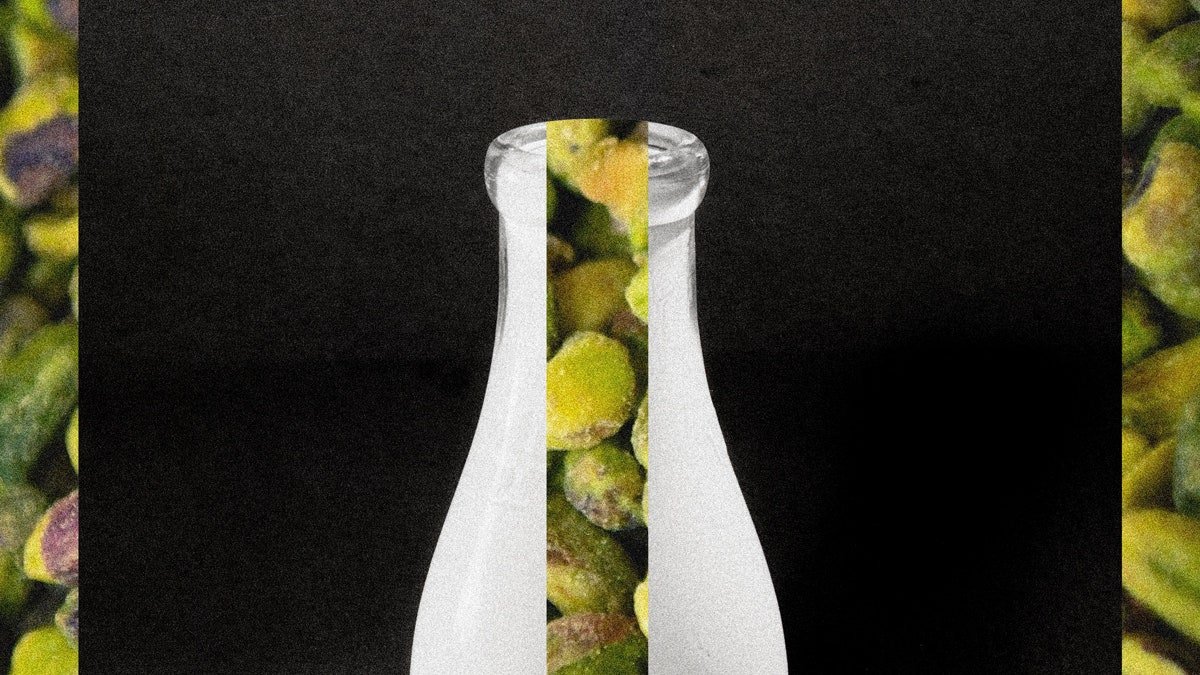A curious new carton has been spotted behind the bar at Ralph’s Coffee on the Upper East Side, on the tables of Maman in the West Village, and the shelves of Foxtrots (aka the Midwest Erewhon) in Chicago and Dallas. It’s mint and green, adorned with a playful graphic of four small men surrounding a giant nut that rests on a pillow. “Táche,” the label reads. “Plant-based original blend.”
In the beginning of the golden age of alternative milks, there was soy. Then, almond, followed swiftly by coconut. Which, frankly, didn’t taste very good in coffee, so then we all went back to almond, until we found out they were depleting our aquifers (not as much as livestock farming, but we digress!). So we switched allegiance to oat. Like really switched allegiance—Oatly’s sales were up 151 percent in 2020 and they just filed for an IPO. But the rumblings started: wait, with added oil and sugar, is oat milk actually good for you?
Enter pistachio milk. It’s vegan, lactose, and gluten-free. Its creamy consistency works well in coffee and smoothies. It uses far less water than almonds, and has less calories, sugar, and oil than oat. (Although we aren’t here to criticize your milk choices, whatever they may be. “In terms of nutrients, all plant milks are pretty similar, in that they are not a significant source of nutrients unless they are fortified with synthetic vitamins. Plant milks are mostly water, after all,” nutritionist Maria Marlowe tells Vogue.)
Yet, as pistachio milk slowly creeps into the corners of trendy coffee shops and grocery stores, it does feel like the time is nigh for this new, nutty contender.
In 2015, Roxana Saidi was in Paris when she had a hankering for an almond milk latte. Since this was 2015 and, well, Paris, she couldn’t get an almond milk latte. But she could get to thinking. Specifically: what other flavor might she enjoy in her coffee?
Half-Persian, she’d grown up constantly snacking on pistachios. (Iran is the second biggest pistachio producer in the world, after the United States. The only reason the United States is the biggest pistachio producer in the world is because we had to grow all our own pistachios after we put economic sanctions on Iran in the 1980s. But this is an article about nut milk, so we aren’t really going to get into it.) “It was a lightbulb moment, Saidi says. “I thought to myself—wait a minute, I’ve grown up my entire life with pistachios. Why isn’t anybody doing that? I’m sure it would be immensely delicious.”
